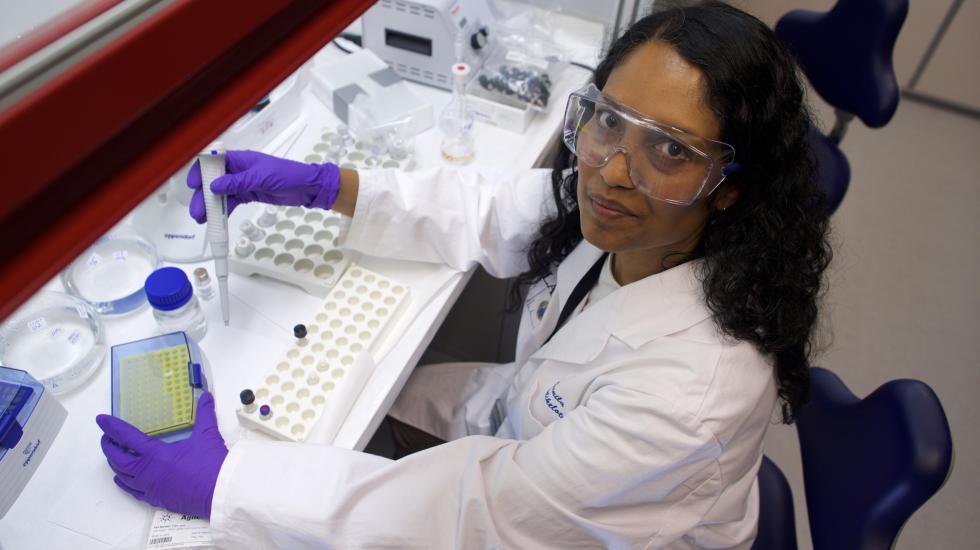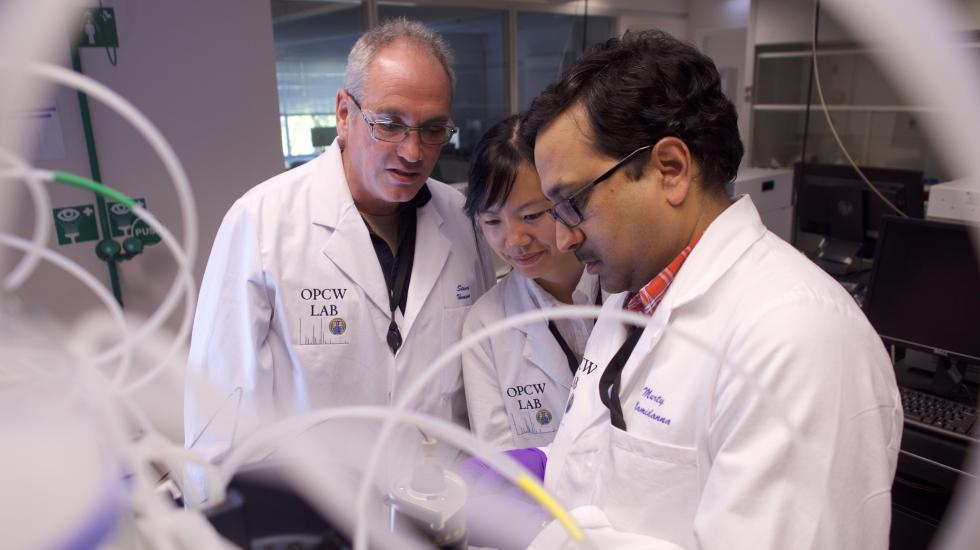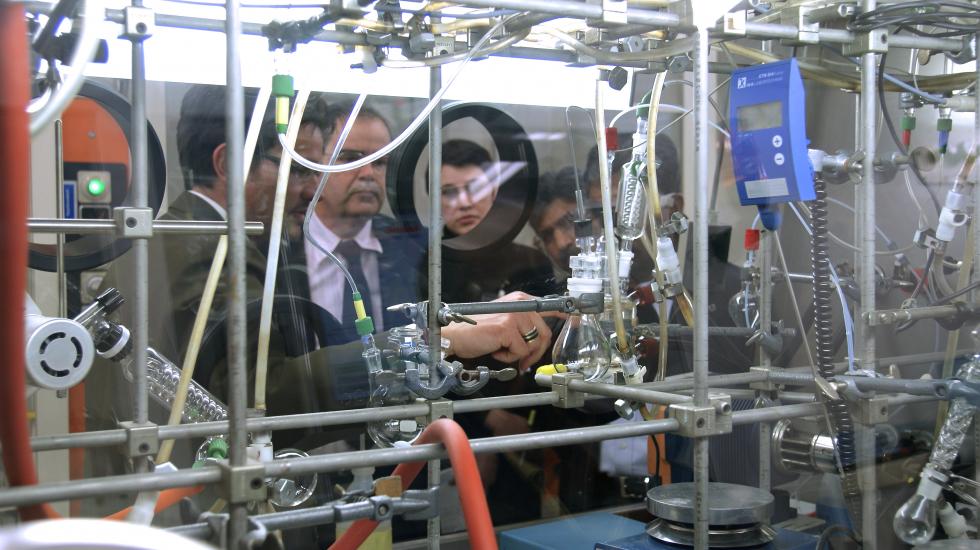Although the Chemical Weapons Convention is primarily designed to eradicate chemical weapons and to prevent their re-emergence, it also contains important provisions relating to the promotion of free trade in chemicals and the open exchange of information and knowledge about the peaceful applications of chemistry.
The Preamble to the Convention promotes these activities as helping to strengthen economic and technological development of all States Parties. Yet, Article I of the Convention prohibits States Parties from assisting or encouraging other States in any way to produce chemical weapons. The Convention also restricts the production of many ‘dual-use’ chemicals, such as those that could be used both in the illegal production of chemical weapons and for peaceful chemical processes.
Ensuring the ban on chemical weapons is upheld, while promoting and facilitating the peaceful exchange of knowledge and trade of chemicals to support the development of States Parties, is a very delicate balancing-act. It requires the OPCW and States Parties to work together to support capacity-building as well as to strive for transparency and cooperation.
Economic and technological development is very important for States Parties, and thus it is one of the foundations within the Convention. Article XI relates specifically to economic and technological development.
States Parties are encouraged to cooperate internationally in the field of chemistry, and are encouraged to exchange scientific and technical information relating to the whole chemical lifecycle as long as it is for purposes not prohibited under the Convention. These ‘purposes not prohibited’ are located in Article II, which includes the following:
- Industrial, agricultural, research, medical, pharmaceutical or other peaceful purposes;
- Protective purposes, namely those purposes directly related to protection against toxic chemicals and to protection against chemical weapons;
- Military purposes not connected with the use of the chemical weapons and not dependent on the use of the toxic properties of chemicals as a method of warfare; and
- Law enforcement including domestic riot control purposes.
In the broadest sense, the OPCW and States Parties should work together to facilitate building and sharing chemical knowledge in ways that support peace and development within and between States Parties. To achieve this, the OPCW provides specific training and workshops to support capacity building and knowledge sharing in States Parties, acts as a forum for consultation and information sharing, and undertakes projects to engage with wider audiences and non-traditional stakeholders to raise-awareness of the Chemical Weapons Convention.
Fostering Peaceful and Secure Uses of Chemistry
The provisions of the CWC have to be effectively and stringently implemented to ensure that a global chemical weapons ban is achieved. Support programmes enhance the OPCW’s ability to check prohibited activity and to extend the benefits of peaceful uses of chemistry to all.
The Secretariat runs a number of programmes, services, and projects that support the exchange of information, equipment, and chemicals as well as foster the peaceful use of chemistry.
These initiatives bring together people from around the world to share knowledge and practices, learn about the Convention, build and foster relationships, and ultimately support the implementation of the Convention and strengthen the prohibition of chemical weapons.
These programmes focus on the need for strengthening economic and technological development through capacity building, facilitating exchanges of chemicals, equipment and scientific and technical information in the context of the development and uses of chemistry for purposes not prohibited under the Convention.



Enhancing Laboratory Capabilities
To maintain and increase the capacity of States Parties to fully implement the CWC, the Secretariat provides expert support to build and maintain the technical capabilities of analytical chemistry laboratories globally.
The OPCW has its own accreditation scheme through which it can determine ‘OPCW Designated’ laboratories around the world. This means the laboratory is of a high standard in regard to its chemical analysis capabilities as proven through a series of proficiency tests organised by the OPCW. This designation means the laboratory can receive samples for analysis from OPCW field missions and directly support the scientific expertise of the OPCW’s work. The Secretariat sponsors visits by experts to laboratories in States Parties to assess, among other things, long-term technical measures needed to help laboratories meet the criteria for OPCW designation.
Similar assistance is also rendered to laboratories that want to improve their capabilities without seeking OPCW designation. In addition to support for staff training, internships, and participation in scientific conferences, the Secretariat can assist with establishing quality assurance systems or preparing quality manuals.
The Secretariat can provide advice to States Parties on the best practices and appropriate technologies needed to destroy chemical weapons, including old or abandoned ones, as well as technical specifications and advice on inspection equipment. A variety of software is also available to the laboratories and specialised institutions in States Parties, including analytical chemistry databases and software that ensures the security of declaration data and enables exchanges of data between States Parties and the OPCW. The Secretariat supports staff training, visits to designated laboratories, and internships at international laboratories, and the OPCW Centre for Chemistry and Technology near The Hague.
